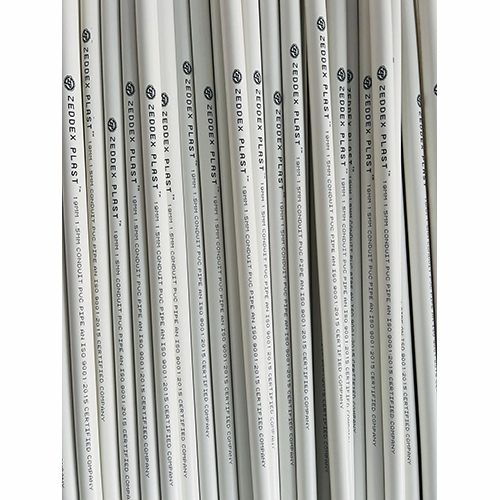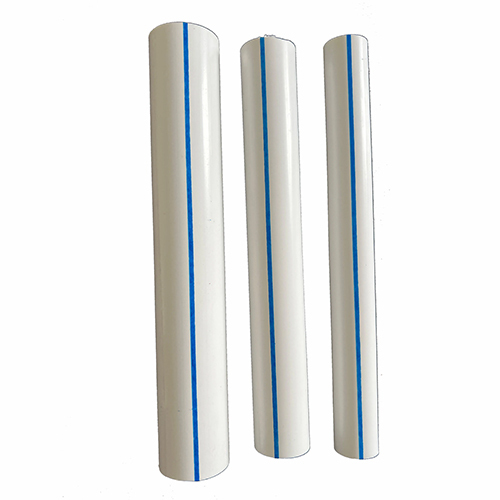PVC Conduit Pipe
85.0 INR/Pack
Product Details:
- Application [ ]
- Product Type ] [ N o n e
- Type o [ N n e ]
- Standard ] [ N o n e
- Color Different Available
- Warranty 1 Year
- Click to View more
X
PVC Conduit Pipe Price And Quantity
- 10 Pack
- 85.0 INR/Pack
PVC Conduit Pipe Product Specifications
- [ ]
- o [ N n e ]
- 1 Year
- Different Available
- ] [ N o n e
- ] [ N o n e
PVC Conduit Pipe Trade Information
- [ ]
- 50000 Pack Per Month
- 10 Days
- 100NOS
- [ ]
- [ ]
- ISO9001:2015 CERTIFIED COMPANY
Product Description
PVC (Polyvinyl Chloride) electrical conduit pipe is a durable, lightweight, and corrosion-resistant tubing used for protecting and routing electrical wiring. It is commonly used in both residential and commercial electrical installations, especially for outdoor and underground applications. PVC conduit is non-metallic, which makes it resistant to rust, moisture, and many chemicals, making it ideal for environments where these factors are a concern.
Key Features of PVC Electrical Conduit:
1. Corrosion Resistance: PVC does not rust, making it suitable for wet, damp, or outdoor environments.
2. Lightweight: Easier to handle and install compared to metal conduits like EMT or RMC.
3. Durability: Resistant to physical damage, UV rays (in UV-resistant grades), and certain chemicals.
4. Non-conductive: Since its made of plastic, PVC conduit doesnt conduct electricity, reducing the risk of electric shock.
5. Cost-Effective: PVC conduit is generally less expensive than metallic options, offering a more budget-friendly solution for electrical installations.
6. Easy Installation: It can be cut and joined with simple tools, and fittings are typically glued or mechanically secured, making installation quick and easy.
Applications:
Residential and Commercial Wiring: Commonly used for running wires in attics, basements, or exterior areas exposed to moisture.
Underground Installations: PVC is often used for burying wires underground, as it is resistant to moisture and soil conditions.
Conduit for Outdoor Equipment: It is frequently used to protect electrical cables running to outdoor electrical devices, like security lighting, garden lamps, or pool equipment.
Overall, PVC electrical conduit is a versatile, durable, and affordable choice for many electrical installations.
Enter Buying Requirement Details




 Send Inquiry
Send Inquiry Send SMS
Send SMS Call Me Free
Call Me Free